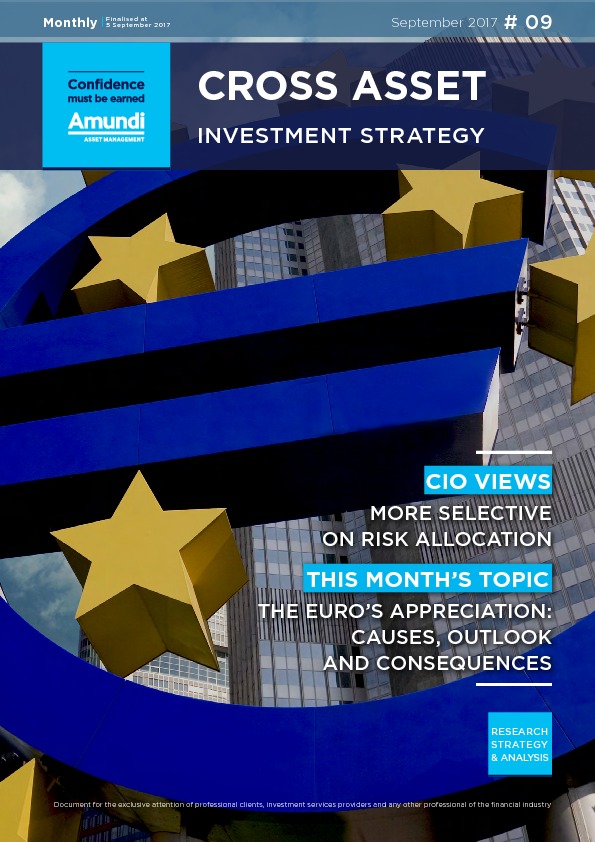

Despite a very strong Q2 earnings season, equity markets halted their march higher in August, amid renewed geopolitical tensions. Meanwhile, the economic cycle is sound and synchronized at a global level. In the US, there are no signs of imminent recession, even though we are probably reaching the late stage of the business cycle, while Europe is enjoying strong and widespread growth, which has surprised on the upside. If the appreciation of the Euro remains limited, as we believe, it should not derail positive economic and earnings momentum. The subdued global inflation outlook, confirmed by July figures both in the US and Eurozone, is enabling Central Banks to hold back from any aggressive moves in terms of both interest rates and balance sheet normalisation.
Also in Emerging Markets (EM), the fundamental backdrop remains supportive. In this scenario, we believe investors should continue to maintain a moderate risk-on stance, with an increasingly selective approach as valuations become tight in some areas of the market. Risk allocation should therefore favour equity versus credit, with a focus on areas of the market which still retain a valuation gap. However, we believe hedging strategies continue to be appropriate to try to manage risks. Over a longer investment horizon (12-24 months), we believe investors may face an asymmetric portfolio payoff. Upside (gains) could be limited (due to market performance and high valuations), while the probability of downside (losses) may increase in line with a natural deceleration of the US economy, the shifts in monetary policy and geopolitical risks. Therefore, we believe investors will need to be ready to reduce risk should this shift in economic and market conditions start to materialise, while also continuing to focus on the still unrewarded market opportunities.





